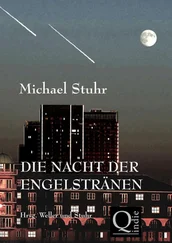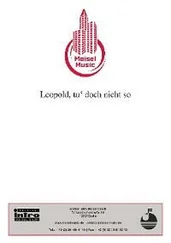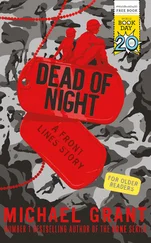Askuwheteau had told me that the Mission was half a day’s walk from where we had camped. He told me to mark the trees and walk in a northerly direction until I found the inland lake that bordered the Mission. He said it would be unmistakable. He had told me to follow the perimeter of the lake until I came to the place where great cliffs rose behind it. Then, he said, I would be at St. Barthélemy. The Mission was adjacent to the lake, below the cliffs.
The Indians had left me a portion of dried meat, bread made from corn, and beans. Some of this I warmed up in the fire and ate. I wrapped the rest of it and placed it carefully in my pack on top of the blankets. Then, taking up a stout stick, which could as easily serve as a weapon as it did a staff, I began to walk north.
In spite of the general terror of my new, unkind station, I took both pleasure and comfort from the rising sun, which spoke to me not only of safety (for I felt that even in this place, the demons must likely absent themselves in the daylight, even if the Hiroquois did not) but of hope.
While I knew that it was entirely likely that I would reach St. Barthélemy and find it burned to the ground and all its inhabitants dead, there was also a possibility that I would, at the very least, find shelter there, if not companionship in my abandonment. When I did not return with news of Father de Céligny, the Indians would be interrogated and the Fathers might yet send rescue of some sort. Failing that, perhaps some passers-by, either friendly Savages or French, would find me and help.
I told myself these things over and over again, even if I did not believe most of them. At least they calmed me somewhat as I walked. I measured out the hours through the medium of an eternity of footsteps across the carpet of dead leaves on the forest floor. And yet, every sound of a tree branch cracking in the distance and every scream of a bird brought me to the very cusp of madness.
The cold hard sun followed me as I walked. By midday, the forest thinned out, and I felt the air grow cooler and damper. It was my fervent prayer that the unnamed lake was just beyond the next part of the forest, and that my prayer, unlike so many others of late, was answered.
In a very short time, there it was in the near distance, larger than I expected, the water calm and the colour of dull iron. The cliffs did indeed rise up behind it like great hulking shoulders, giving the region a pagan look, as though it were once the realm of ancient gods. I realized, even as I thought these things, that I was skirting the outer edge of blasphemy. But in the face of the terror of my abandonment here by the Indians, nothing in the world looked the same to me and, likely, never would again.
While I knew God was in His Heaven looking down on His earth, I truly felt in that moment that He must be looking elsewhere, for the silence of the place was both a temporal and spiritual vacuum. The wind did not blow, and no bird sang in the trees.
I hurried along the perimeter of the lake, always in sight of the water lest I somehow lose my way, even this close to my destination. I scanned the horizon in vain for some plume of smoke that might signal human habitation, but there was none.
And then, over the crest of one of those infernal mounds of rock that seemed to burst forth out of the ground everywhere like monstrous teeth, I saw it in the distance: the village wherein lay the Mission of St. Barthélemy.
I had arrived at my destination at long last.
My first impression of the humble Jesuit house in the village (the residence building itself, containing the chapel for Mass and the refectory, situated on a small hill) was that it seemed as fresh-built as the day upon which the construction was completed by the tribe. It rose up out of a clearing in the forest like some miraculous flower of civilization in the midst of a wasteland of rock and pine.
Around it was a scattering of crude huts of bent poplar and bark where the Indians of the village themselves obviously lived. What struck me immediately was the absence of the cacophony that accompanied life in their villages, the screaming children, the barking dogs, and the general tumult. The eerie silence persisted here as it had in the forest leading to it, but there was no smell of smoke in the air, and none of the buildings looked like any flame had scorched them.
My joy at this was boundless for, at the very least, this meant that I would have shelter tonight, barring any discovery of a gruesome nature inside the buildings themselves.
As I drew close to the Jesuit house, I was met with a distressing sight: the wooden cross that stood in front of the residence building housing the chapel had been torn down. That is to say, while the pine pole, which formed the primary pillar of the cross, was still firmly entrenched in the earth, the crossbeams had been broken off, or pulled down. I told myself that it had been caused by some storm of wind and rain, for surely if the intent had been desecration, the entire cross would have been demolished.
I climbed the small hill with trepidation and pushed open the door. In the dimness of the chapel, nothing seemed immediately awry, though dirt from the outside lay heavily on the floor, and even the altar. Here too, there was no evidence of the symbol of Our Lord’s martyrdom, though neither was there anything suggesting destruction or other mischief, though again I was aware of that unnerving, tomb-like silence that lay over the chapel like a pall.
Instinctively I sniffed the air, at once terrified that I would catch the smell of death and relieved that I did not. The smell was one of general airlessness-lifelessness, even.
I walked slowly through the two “rooms” of the house, only to find more of the same.
In the section that obviously served as a kitchen, there was a crude table with cutlery and plates laid out as though for supper, but they too were covered with a dusting of dirt, as though those meant to dine had simply walked out and not returned. In the dead hearth, a black iron pot hung from a hook. In the pot, I observed, a spoon was encased in a dried mulch of some sort of grain stew that had petrified, but even from the pot there was no odour, for this meal had been cooked and abandoned a very long time ago.
The trappers who had reported back to Samuel de Champlain had not been wrong: St. Barthélemy was indeed entirely deserted. While there was ample evidence of the settlement having been inhabited, there was quite literally no trace of any living person in any part of it.
Feeling again that infernal chill, I stepped outside to retrieve some wood from the stack I’d noticed near the entrance. On a table, I found a tinder-box. I struck the steel and flint to some straw and built a fire in the hearth to warm myself. In the crude cupboards I found several bottle of wine, as well as stores of dry goods: beans, corn and the like.
I opened one of the bottles of wine and poured a healthy draught into one of the tankards on the table, caring little for its cleanliness after those many weeks on the water with the Indians. The taste of the wine on my tongue was wonderful. I had drunk nothing but lake water since we had left Trois-Rivières and my palette was starved for variance of flavour.
Before sunset, I hiked back to the lake and drew water, both for drinking and for cooking. It was a more arduous walk back carrying the water, but I made haste and imagine an hour or less passed between my departure and my return.
I boiled some of the beans on the hearth and ate plentifully for the first time in many days.
After I had eaten, I washed the plate and went back inside, where I found a crude bed made of a sheet of bark. Above it was a shelf. Clearly this had been the abode of Father de Céligny, for there I found some books and some clothes. His Bible and crucifix were not among the store. I dragged the bark-bed close enough to the hearth that I would be warm as I slept. I arranged the blankets on top of it and lay down, but not before bolting the door from the inside. Without thinking, I removed my own heavy crucifix for the sake of comfort.
Читать дальше












